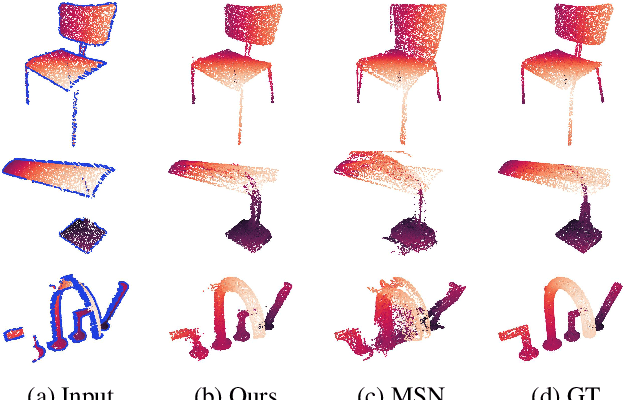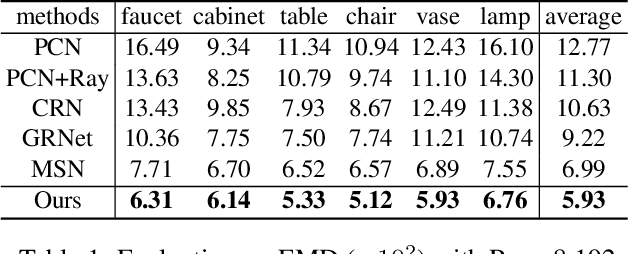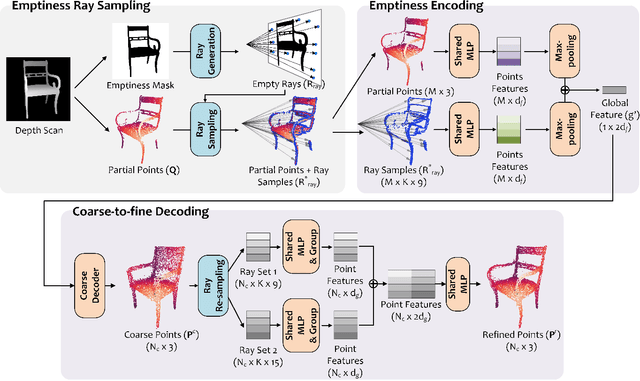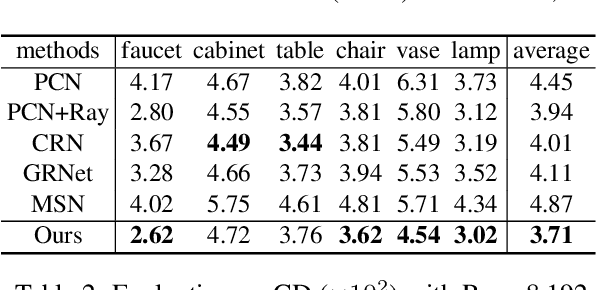ME-PCN: Point Completion Conditioned on Mask Emptiness
Paper and Code
Aug 18, 2021



Point completion refers to completing the missing geometries of an object from incomplete observations. Main-stream methods predict the missing shapes by decoding a global feature learned from the input point cloud, which often leads to deficient results in preserving topology consistency and surface details. In this work, we present ME-PCN, a point completion network that leverages `emptiness' in 3D shape space. Given a single depth scan, previous methods often encode the occupied partial shapes while ignoring the empty regions (e.g. holes) in depth maps. In contrast, we argue that these `emptiness' clues indicate shape boundaries that can be used to improve topology representation and detail granularity on surfaces. Specifically, our ME-PCN encodes both the occupied point cloud and the neighboring `empty points'. It estimates coarse-grained but complete and reasonable surface points in the first stage, followed by a refinement stage to produce fine-grained surface details. Comprehensive experiments verify that our ME-PCN presents better qualitative and quantitative performance against the state-of-the-art. Besides, we further prove that our `emptiness' design is lightweight and easy to embed in existing methods, which shows consistent effectiveness in improving the CD and EMD scores.
 Add to Chrome
Add to Chrome Add to Firefox
Add to Firefox Add to Edge
Add to Edge